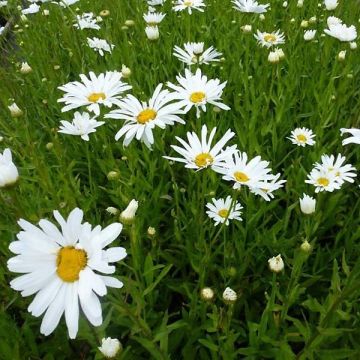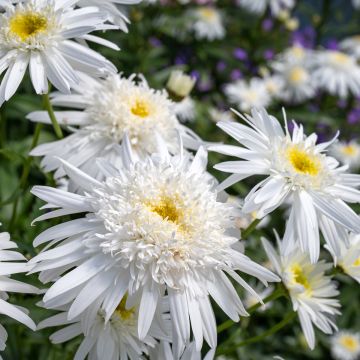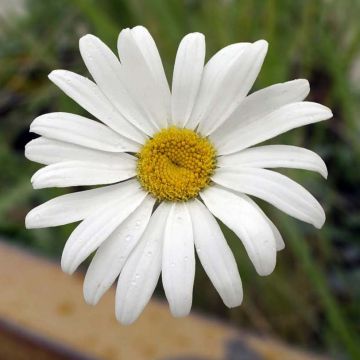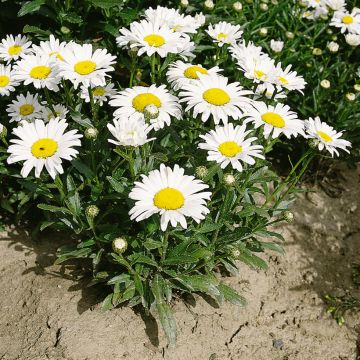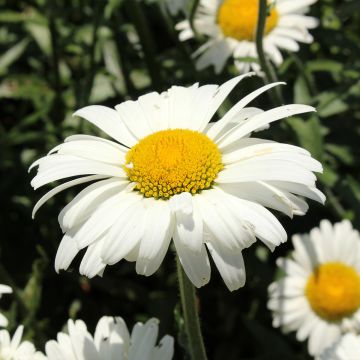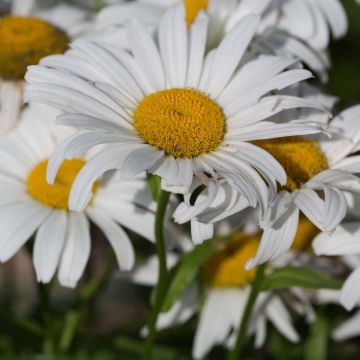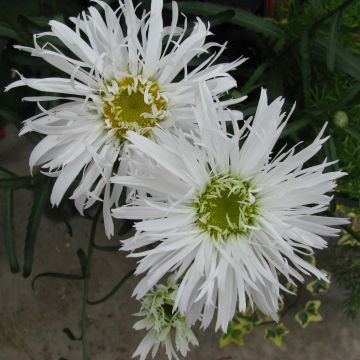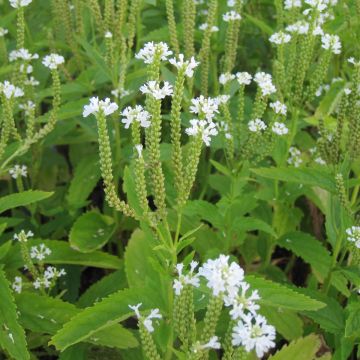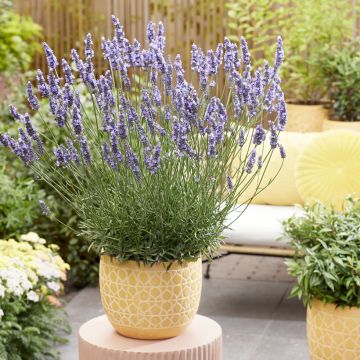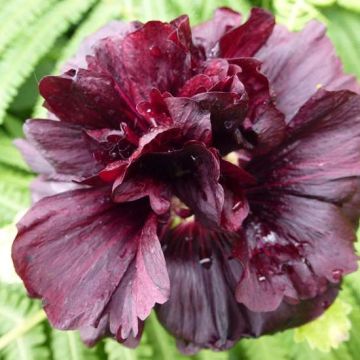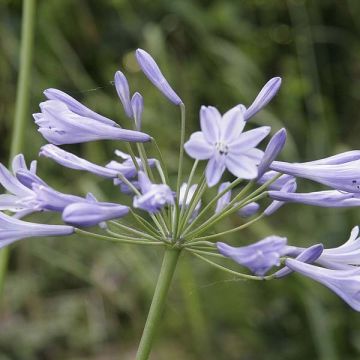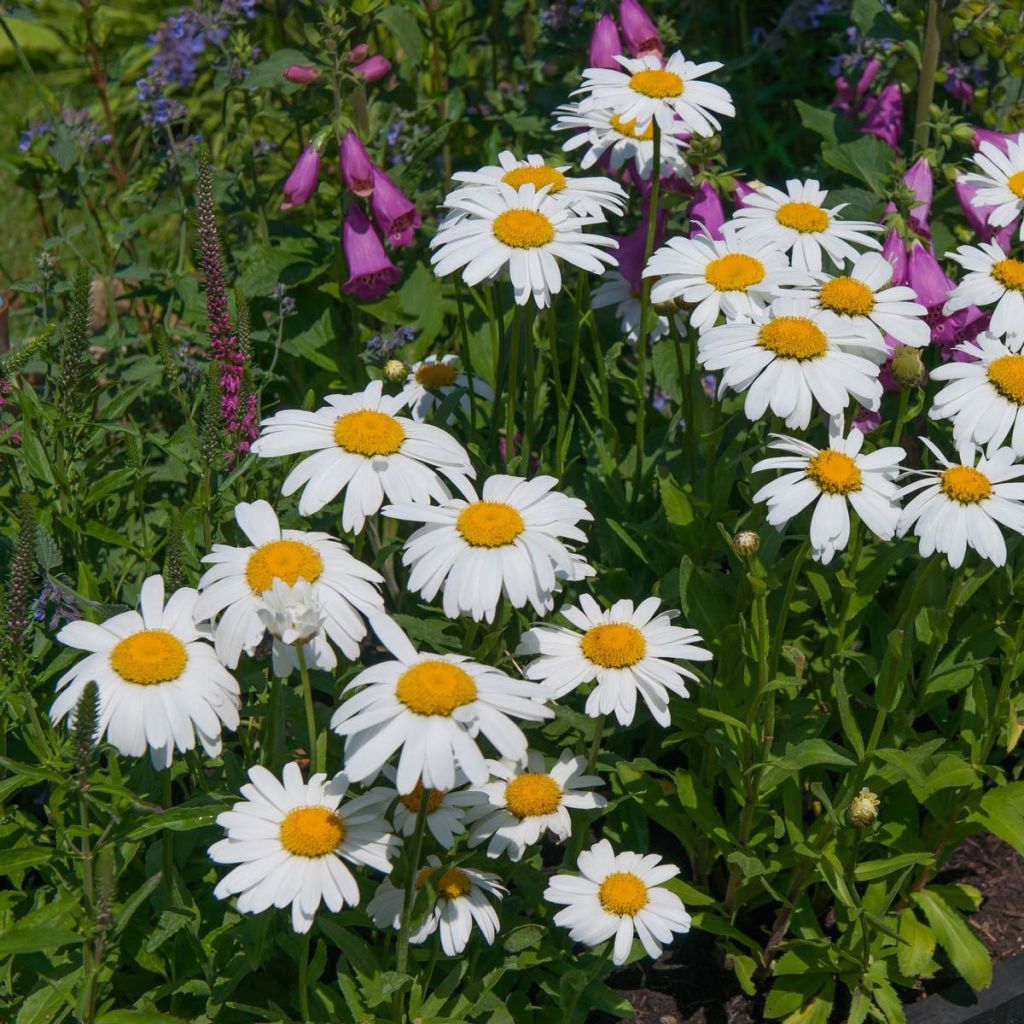

Leucanthemum Petite Princesse d'Argent - Shasta Daisy
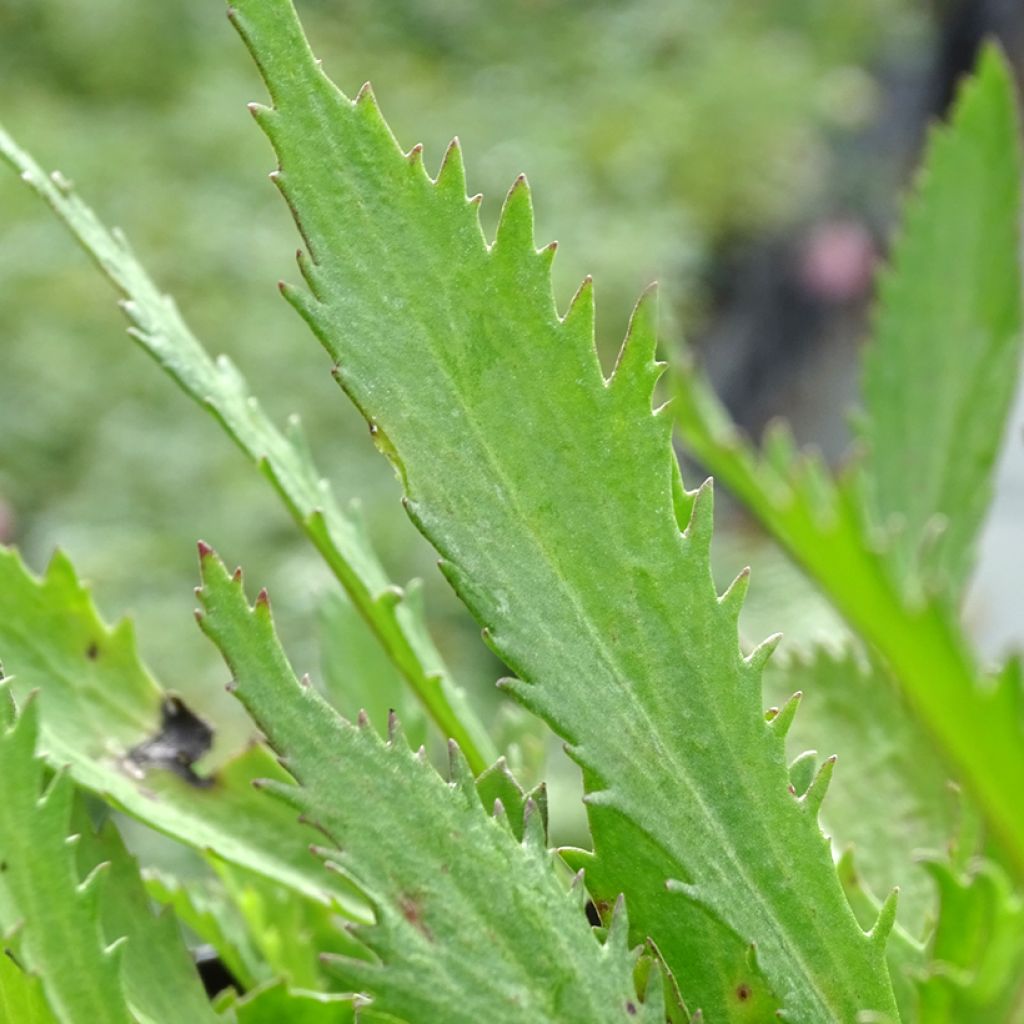

Leucanthemum Petite Princesse d'Argent - Shasta Daisy
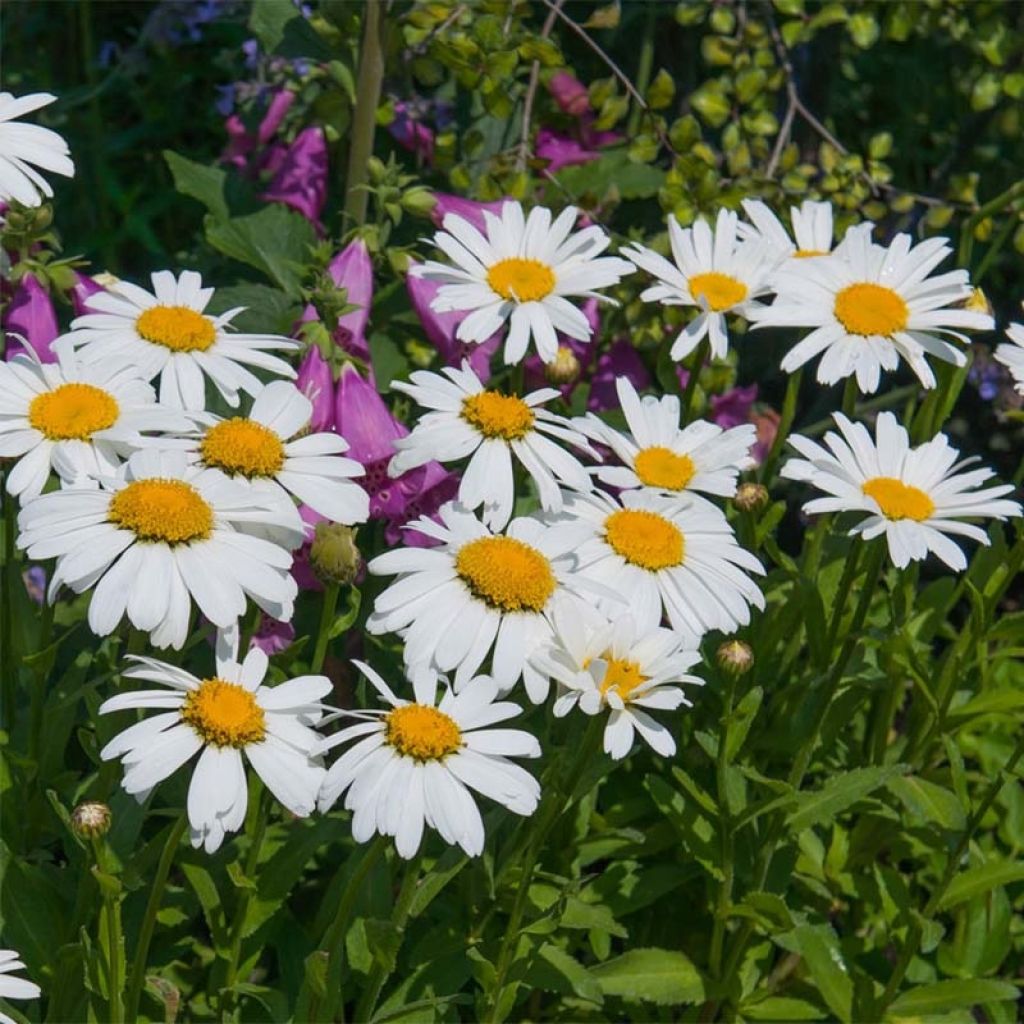

Leucanthemum Petite Princesse d'Argent - Shasta Daisy
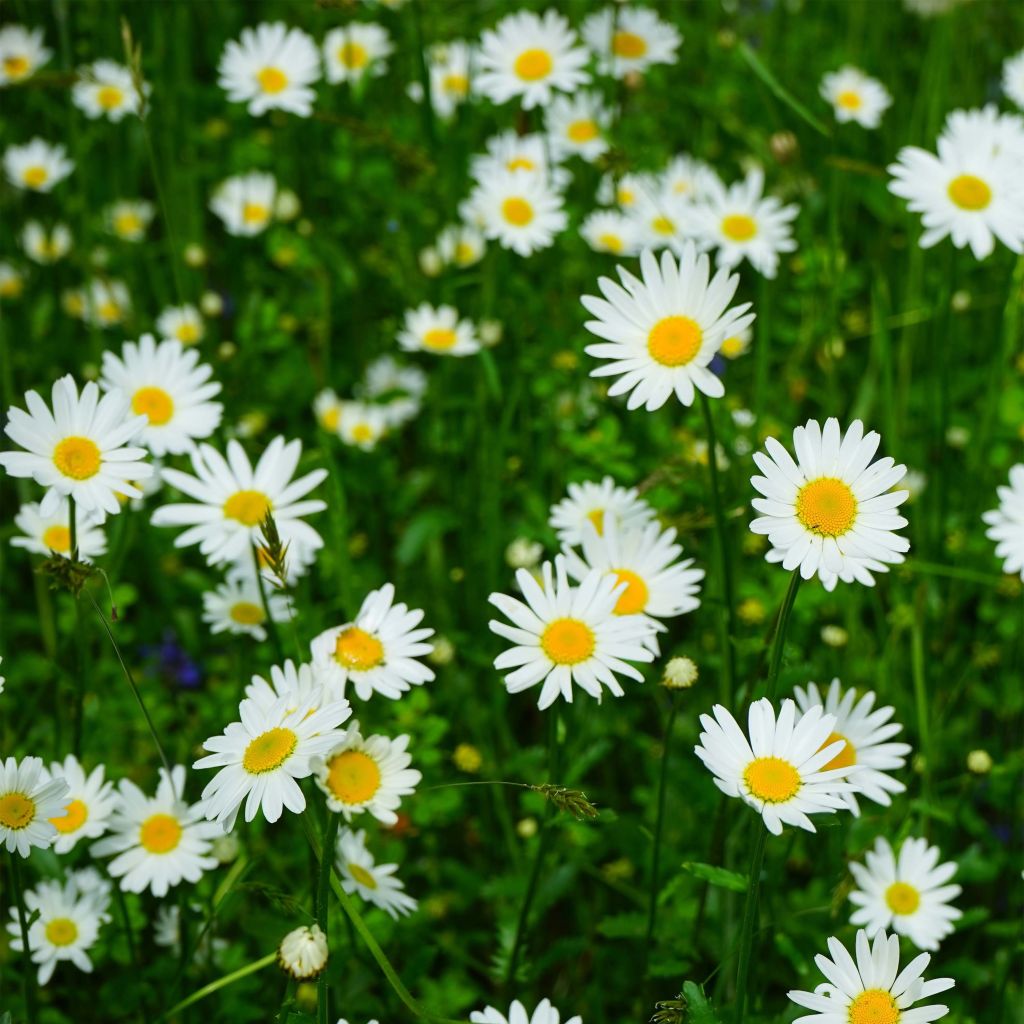

Leucanthemum Petite Princesse d'Argent - Shasta Daisy
Leucanthemum Petite Princesse d'Argent - Shasta Daisy
Leucanthemum maximum x superbum Petite Princesse d'Argent
Shasta Daisy
Good recovery in the first year, I hope the young plants will fill out more next year.
Alix, 20/09/2025
Special offer!
Receive a €20 voucher for any order over €90 (excluding delivery costs, credit notes, and plastic-free options)!
1- Add your favorite plants to your cart.
2- Once you have reached €90, confirm your order (you can even choose the delivery date!).
3- As soon as your order is shipped, you will receive an email containing your voucher code, valid for 3 months (90 days).
Your voucher is unique and can only be used once, for any order with a minimum value of €20, excluding delivery costs.
Can be combined with other current offers, non-divisible and non-refundable.
Home or relay delivery (depending on size and destination)
Schedule delivery date,
and select date in basket
This plant carries a 12 months recovery warranty
More information
We guarantee the quality of our plants for a full growing cycle, and will replace at our expense any plant that fails to recover under normal climatic and planting conditions.

Would this plant suit my garden?
Set up your Plantfit profile →
Description
Leucanthemum x superbum 'Petite Princesse d'Argent' is a low-growing version of the large daisy that we have always loved, with large, simple flowers, white with a yellow centre, carried by a plant that will not exceed 30 cm in all directions, resistant to wind. This hardy and sturdy perennial forms a beautiful bouquet of stems and dark leaves, flowering from July to September, animated by the flight of pollinating insects. Very easy to grow, for sun or partial shade, delightful in borders and bouquets.
The genus Leucanthemum belongs to the Asteraceae family. 'Petite Princesse d'Argent' is a horticultural hybrid obtained from Leucanthemum (x) superbum, the large daisy that we are familiar with. This variety forms a bushy clump, as tall as it is wide, measuring approximately 30cm in all directions, with moderately fast growth. It forms an opulent clump of numerous leafy stems, deciduous. The flowering takes place from July to October, provided that faded flowers are regularly removed. They take the form of solitary heads, 7cm in diameter, with thin and flat white ligules arranged in a single crown around a golden yellow heart. The leaves are long, dark green, simple and alternate. They are lanceolate with a regularly toothed edge, almost fleshy. Their surface is glabrous. The plant reaches full maturity in five years and can live for many years.
This summer daisy, so suitable for making bouquets, will be perfect in a wildflower meadow or in a natural garden, in a flower meadow under fruit trees, or at the back of the garden. While we are not talking about extravagant colours here, we emphasize instead the constancy, robustness and floriferousness of these "simple" flowers that will bring real structure to low borders, but also in fresh rockeries. Accompany its flowering with that of echinaceas, mix it with asters, perennial flax, autumn daisies, peonies, blue lupins or bellflowers. Create a charming and simple bouquet with this flower, in the garden or in a vase in the house.
Report an error about the product description
Leucanthemum Petite Princesse d'Argent - Shasta Daisy in pictures
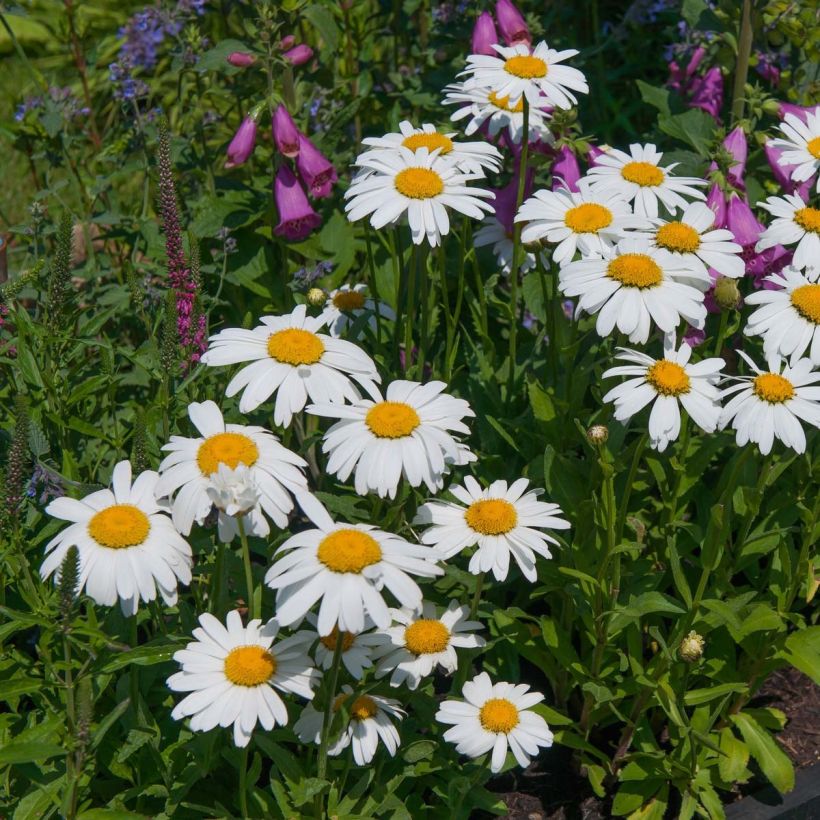

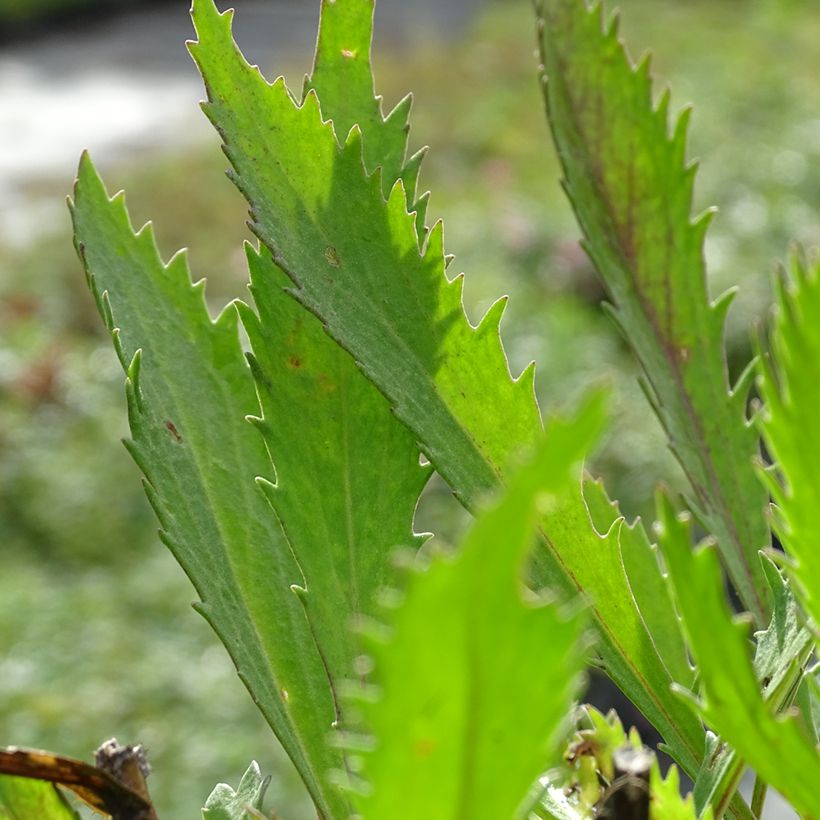

Flowering
Foliage
Plant habit
Botanical data
Leucanthemum
maximum x superbum
Petite Princesse d'Argent
Asteraceae
Shasta Daisy
Cultivar or hybrid
Other Leucanthemum - Marguerite
View all →Planting and care
Plant the 'Petite Princesse d'Argent' Daisy in deep, humus-rich, moist to wet soil. For fine drainage, add some loamy sand to the planting substrate. This plant does not have any specific soil pH requirements. It will thrive in a sunny, or at most partially shaded, exposure. It can tolerate temperatures as low as -29°C. Clean the plant in spring to remove dead foliage. This daisy can be attacked by aphids, snails, and may develop foliar spots. Make sure to plant it in well-drained soil. Divide it every 3 to 4 years at most to maintain its vigour.
Planting period
Intended location
Care
-
, onOrder confirmed
Reply from on Promesse de fleurs
Similar products
Haven't found what you were looking for?
Hardiness is the lowest winter temperature a plant can endure without suffering serious damage or even dying. However, hardiness is affected by location (a sheltered area, such as a patio), protection (winter cover) and soil type (hardiness is improved by well-drained soil).

Photo Sharing Terms & Conditions
In order to encourage gardeners to interact and share their experiences, Promesse de fleurs offers various media enabling content to be uploaded onto its Site - in particular via the ‘Photo sharing’ module.
The User agrees to refrain from:
- Posting any content that is illegal, prejudicial, insulting, racist, inciteful to hatred, revisionist, contrary to public decency, that infringes on privacy or on the privacy rights of third parties, in particular the publicity rights of persons and goods, intellectual property rights, or the right to privacy.
- Submitting content on behalf of a third party;
- Impersonate the identity of a third party and/or publish any personal information about a third party;
In general, the User undertakes to refrain from any unethical behaviour.
All Content (in particular text, comments, files, images, photos, videos, creative works, etc.), which may be subject to property or intellectual property rights, image or other private rights, shall remain the property of the User, subject to the limited rights granted by the terms of the licence granted by Promesse de fleurs as stated below. Users are at liberty to publish or not to publish such Content on the Site, notably via the ‘Photo Sharing’ facility, and accept that this Content shall be made public and freely accessible, notably on the Internet.
Users further acknowledge, undertake to have ,and guarantee that they hold all necessary rights and permissions to publish such material on the Site, in particular with regard to the legislation in force pertaining to any privacy, property, intellectual property, image, or contractual rights, or rights of any other nature. By publishing such Content on the Site, Users acknowledge accepting full liability as publishers of the Content within the meaning of the law, and grant Promesse de fleurs, free of charge, an inclusive, worldwide licence for the said Content for the entire duration of its publication, including all reproduction, representation, up/downloading, displaying, performing, transmission, and storage rights.
Users also grant permission for their name to be linked to the Content and accept that this link may not always be made available.
By engaging in posting material, Users consent to their Content becoming automatically accessible on the Internet, in particular on other sites and/or blogs and/or web pages of the Promesse de fleurs site, including in particular social pages and the Promesse de fleurs catalogue.
Users may secure the removal of entrusted content free of charge by issuing a simple request via our contact form.
The flowering period indicated on our website applies to countries and regions located in USDA zone 8 (France, the United Kingdom, Ireland, the Netherlands, etc.)
It will vary according to where you live:
- In zones 9 to 10 (Italy, Spain, Greece, etc.), flowering will occur about 2 to 4 weeks earlier.
- In zones 6 to 7 (Germany, Poland, Slovenia, and lower mountainous regions), flowering will be delayed by 2 to 3 weeks.
- In zone 5 (Central Europe, Scandinavia), blooming will be delayed by 3 to 5 weeks.
In temperate climates, pruning of spring-flowering shrubs (forsythia, spireas, etc.) should be done just after flowering.
Pruning of summer-flowering shrubs (Indian Lilac, Perovskia, etc.) can be done in winter or spring.
In cold regions as well as with frost-sensitive plants, avoid pruning too early when severe frosts may still occur.
The planting period indicated on our website applies to countries and regions located in USDA zone 8 (France, United Kingdom, Ireland, Netherlands).
It will vary according to where you live:
- In Mediterranean zones (Marseille, Madrid, Milan, etc.), autumn and winter are the best planting periods.
- In continental zones (Strasbourg, Munich, Vienna, etc.), delay planting by 2 to 3 weeks in spring and bring it forward by 2 to 4 weeks in autumn.
- In mountainous regions (the Alps, Pyrenees, Carpathians, etc.), it is best to plant in late spring (May-June) or late summer (August-September).
The harvesting period indicated on our website applies to countries and regions in USDA zone 8 (France, England, Ireland, the Netherlands).
In colder areas (Scandinavia, Poland, Austria...) fruit and vegetable harvests are likely to be delayed by 3-4 weeks.
In warmer areas (Italy, Spain, Greece, etc.), harvesting will probably take place earlier, depending on weather conditions.
The sowing periods indicated on our website apply to countries and regions within USDA Zone 8 (France, UK, Ireland, Netherlands).
In colder areas (Scandinavia, Poland, Austria...), delay any outdoor sowing by 3-4 weeks, or sow under glass.
In warmer climes (Italy, Spain, Greece, etc.), bring outdoor sowing forward by a few weeks.































